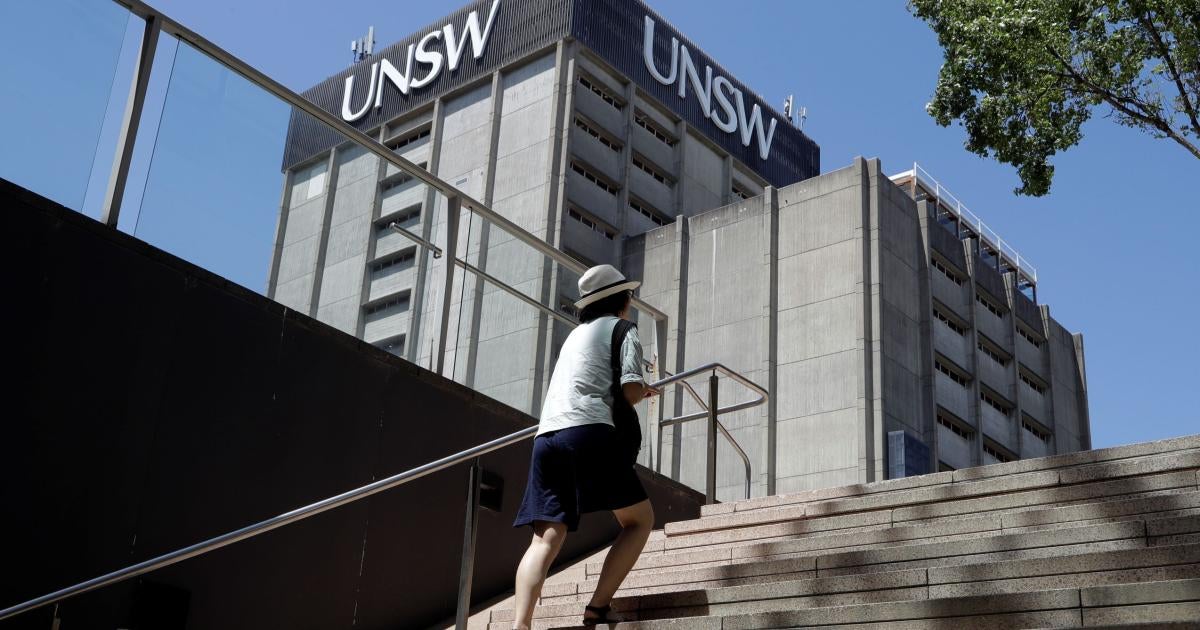How Australian universities are working to counter China's global attacks on academic freedom

When international students arrived back on the University of Technology Sydney campus this semester, there was a minor but significant change to the standard 'O Week' session to orientate new students. Alongside newcomer tips for life in Australia — like "wear sunscreen" and "swim between the flags" — university administrators added a new warning informing students of their right to be free from any form of state-backed harassment or political intimidation. "Here in Australia, the culture, customs, and rules are different," the university advised students. "You can disagree about anything. You can have different opinions in class. You can write about your beliefs and opinions. You can show your beliefs in public." University management made clear that if students were at the receiving end of threats or their private information was shared online in a "doxing" attack, the university was there to assist. "If these things happen to you, or if you are having your communications or opinions censored, we can help," they said. Part of a new "Essential International Advice" package at UTS, this simple but powerful messaging is an Australian first — and the result of increasing awareness of Chinese government threats to academic freedom around the world. On March 25, the Parliamentary Joint Committee on Intelligence and Security released its long-awaited report examining foreign interference at Australian universities. During its inquiry, the committee heard evidence from Human Rights Watch and other witnesses that Chinese government supporters had threatened and intimidated pro-democracy students from China as well as university staff, which had led to self-censorship, fear, and the inability of Chinese students to fully engage in their studies.
The resulting report, which was supported unanimously by both Coalition and Labor committee members, makes strong recommendations to universities and the government to counter this "state-backed harassment". These include mechanisms to report incidents of foreign interference; deterrence for students who report on activities of fellow students to foreign governments; the adoption of measures to allow for anonymous assignment submission; closer scrutiny of student associations linked to authoritarian governments; and that universities should retain control over what students are taught at Chinese government-funded Confucius Institutes and publicly disclose where that funding comes from. It is not just Australian universities confronting these delicate issues, with campuses around the world increasingly vulnerable to Beijing's global campaign to undermine human rights. In January, the Vrije Universiteit (Free University) of Amsterdam pledged to return Chinese government funding for a "Cross-Cultural Human Rights Centre" after several of the centre's employees articulated views on human rights issues strikingly similar to those of the Chinese government.
These included denying that the Chinese government was oppressing ethnic Uyghurs, despite overwhelming evidence that authorities are targeting Uyghurs for crimes against humanity. In February, the president of George Washington University in Washington DC endorsed a request to remove posters from campus criticising the Beijing Winter Olympics and the Chinese Communist Party after a Chinese student organisation complained. He later admitted his decision was a mistake and made in haste. An incident in early March at Cornell University in New York State during which a group of Chinese international students booed and left an event in protest after a Uyghur student spoke about her brother's detention in Xinjiang shows that on-campus tensions aren't going away.
The Committee's report, coupled with updated guidelines from the University Foreign Interference Taskforce, will make it harder for Australian universities to sweep these issues under the carpet. Some universities are already leading the way. Besides UTS, The University of New South Wales is developing a similar awareness campaign for students and staff. This new approach to resisting threats to academic freedom in Australian universities will not change the situation overnight, but it's a start for students who have been living in fear. "I am so glad to hear this," says Eric, one of the Chinese students I interviewed for our Human Rights Watch research, upon hearing about the committee's report and the new approach at UTS and UNSW. "The Chinese government's ability to silence dissidents overseas will be restricted. This change will enable more students to speak their mind without the fear of retaliation." Australian universities and vice-chancellors now have the chance to lead the way and show that there are practical steps educational institutions can take to push back against Beijing's efforts and to guarantee a new sense of safety and academic freedom on campus.
Read the full article at the original website
References:
- https://www.uts.edu.au/sites/default/files/2022-02/UTSI-International-Student-Guide-2022-Web.pdf
- http://www.aph.gov.au/pjcis
- https://parlinfo.aph.gov.au/parlInfo/download/committees/reportjnt/024611/toc_pdf/InquiryintonationalsecurityrisksaffectingtheAustralianhighereducationandresearchsector.pdf;fileType=application%2Fpdf
- https://www.abc.net.au/news/2019-08-28/concerns-chinese-communist-party-infiltration-university-review/11455588
- https://www.hrw.org/report/2021/06/30/they-dont-understand-fear-we-have/how-chinas-long-reach-repression-undermines
- https://www.abc.net.au/news/2019-10-15/chinese-government-cofunded-four-university-of-queensland-course/11601946
- https://www.hrw.org/news/2020/01/27/us-universities-close-confucius-institutes-whats-next
- https://www.hrw.org/news/2022/01/20/dutch-university-hit-chinese-government-funding-scandal
- https://president.gwu.edu/message-regarding-posters-displayed-campus
- https://www.independent.co.uk/news/world/americas/cornell-university-uyghur-genocide-china-b2039075.html
- https://www.dese.gov.au/guidelines-counter-foreign-interference-australian-university-sector/university-foreign-interference-taskforce
- https://www.abc.net.au/news/2021-06-30/china-international-students-australia-human-rights-watch-report/100253852
